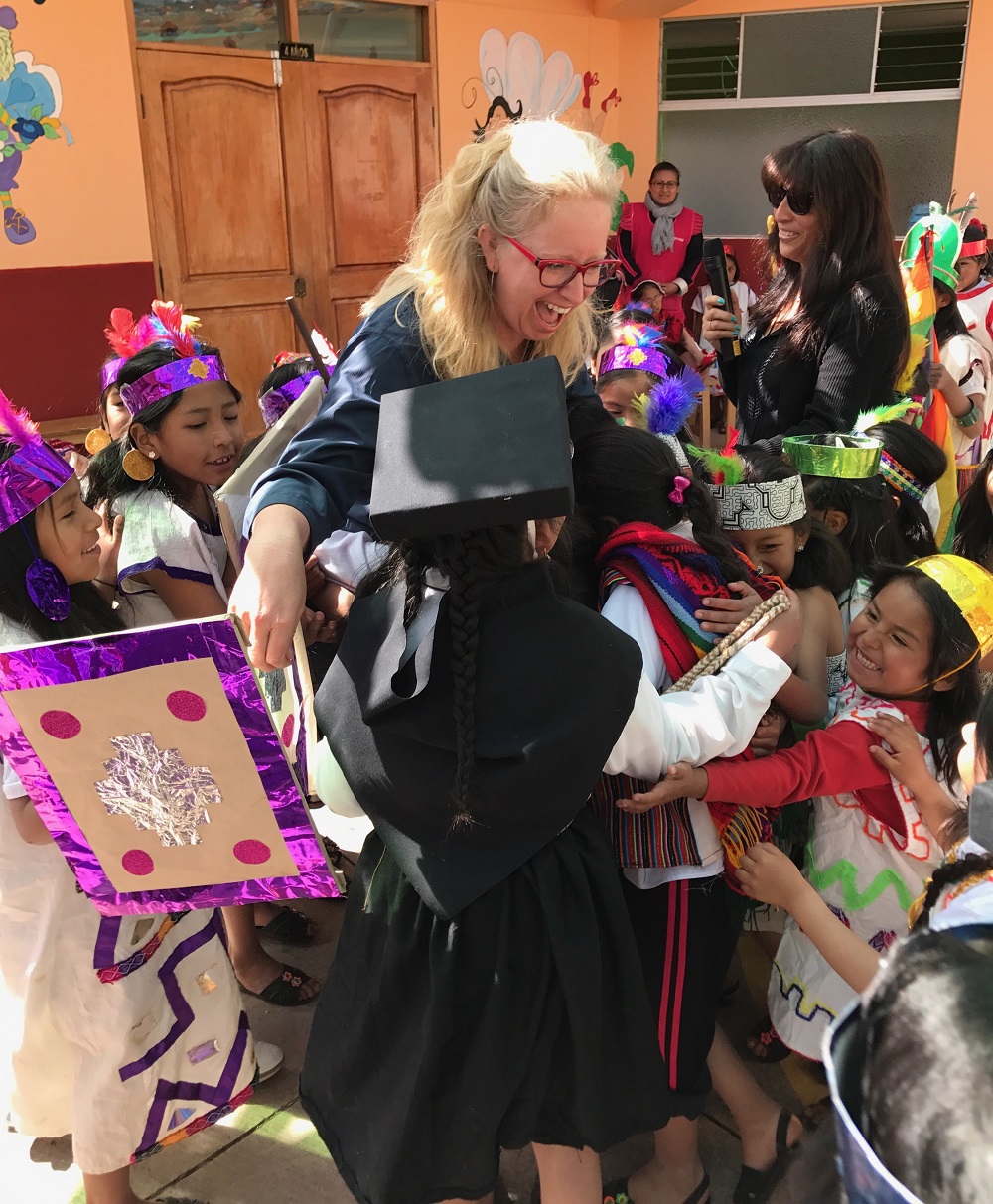
How Do You Say “Love” in Quechua?
Chicuchas Wasi is a place defined by love. Love is the first and last consideration of everything they do, and it is so palpable that even a stranger like me, entering for the first time, could feel it. Upon entering this school for Quechua girls outside of Cusco, Peru, all the girls were in groups around the courtyard ready to perform, and all eyes were on me. This isn’t the usual way shy Peruvian girls might act – they were proud of their costumes and preparation for their performance, and they were confident and eager to show what they knew. Each of them wanted to talk with me, and I wished I could have duplicated myself to connect with every one of them!
The teachers and school director, who also function as social workers, visit with the community and families to find the girls who are most in need. These are teachers who know what is going on in each student’s home because they do the visits themselves. They bring the parents to the school for parenting education and engage the parents in the activities of the school. When girls graduate, they bring them back to the school to ensure they have what they need, but also to give a forum for the girls, still considered at-risk, to express their feelings about their lives.
I received a tour of the school and an incredible presentation of the Incan Winter Solstice ceremony. Each girl made her own costume, learned songs, dances, chants, and scripts for this event. It was an unforgettable spectacle showcasing the leadership of the older girls and the potential of the younger girls.
Afterwards, I shared lunch with a group of 3rd graders and enjoyed the freshly made Aji de Gallina (creamy chicken stew) with them. Being 3rd graders, they giggled and told jokes all through the meal, but still finished every last bite. Nutrition is a major factor affecting their health and, therefore, the ability to move out of poverty for these families. It was great to see the quality of food prepared for the girls. I had Aji de Gallina the night before in a restaurant and the Chicuchas Wasi preparation wins!
There are 112 girls at a time at Chicuchas Wasi and it was clear after speaking with the students, the teachers, and some parents that it is a life-changing experience for the girls and their families. I think I left my heart there and there is no question that we, as members of DFW, have invested in an effective method to create an equal playing field for Quechua girls.
